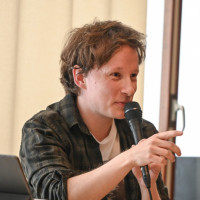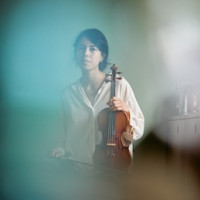Skulle have sendt min dobbeltgænger
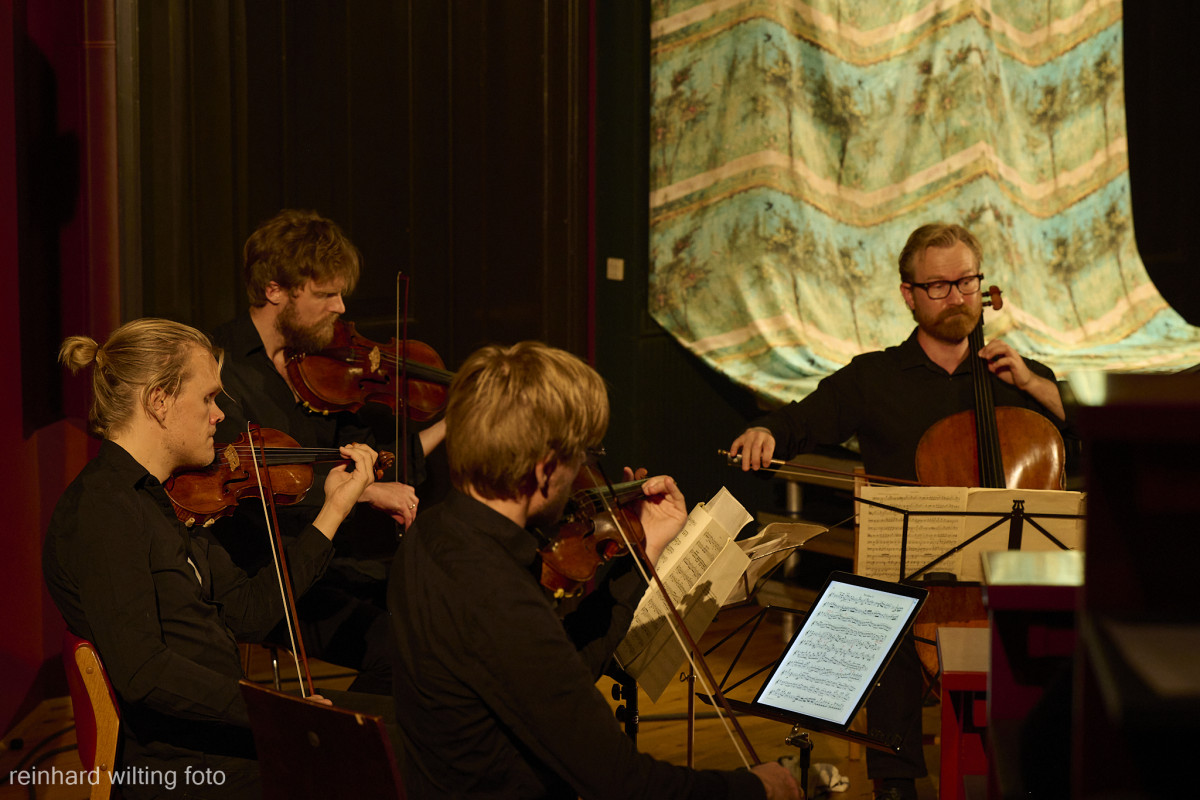
Ideen fejlede ingenting: lige at komme ud og høre et par nye strygekvartetter. Det havde været så længe siden! Selveste Danish String Quartet med nyt fra næsten lige så selveste Bent Sørensen. Og et megaværk fra altid alt for uberømmede Niels Rønsholdt. Det burde ikke kunne gå galt.
Men hvad havde dog den fabelagtige Sørensen rodet sig ud i? Efter tre kvarters opvisning med Schuberts sprudlende, glødende, men trods alt ubønhørligt lange Kvartet i G-dur satte DSQ gang i Sørensens Doppelgänger. Som altså viste sig at være det sidste, man orkede i øjeblikket: en halv times remix af Schuberts værk! I nye klæder, natürlich, men forvandlingerne havde karakter af fikse idéer, der gjorde Sørensen mere menneskelig, end jeg huskede ham fra pragtværket Second Symphony.
Hvad der virkede elegant i symfonien – idéer, der cirklede spøgelsesagtigt rundt i orkestret – blev forsøgt genanvendt fra start i kvartetten. En simpel durakkord blev sendt på mikrotonal omgang mellem musikerne, så det til sidst mindede om forvrængninger i et spejlkabinet. Manøvren havde øvelsespræg, koketteri var indtrykket.
Derpå fulgte buer, der faldt ned på strengene som en hård opbremsning. Tyve minutter senere var figuren tilbage, men nu vendt om til accelerationer. Et forsøg på at fremvise sammenhæng i et værk, der ellers virkede unødigt rodet og sprang fra koncept til koncept? Lidt glidninger på strengene; dæmpning for at skabe en sprød cembaloklang; en lang, sfærisk passage; tilbagevenden til Schubert og tonika. Den gode Sørensen var blevet sin egen dobbeltgænger i processen, halsende efter forlægget. Jeg tillod mig et frederiksbergsk »åh!«.
Iført nye forventninger troppede jeg op til Rønsholdts 100-satsede Centalog to dage senere. Milde skaber, dette var endnu værre! Bag heltemodige Taïga Quartet tikkede et antikt vægur ufortrødent i samfulde 75 minutter. En fornemmelse af eksamenslæsning hang over os. Nøgternt præsenterede Rønsholdt selv de kommende satser hvert tiende minut: »10 left, 11 left, 12 left« eller »40 right, 41 right« og, koket, »13 left, missing item, 15 left«. Handlede det om læseretningen i noden, om strøgets bevægelse? Klart stod det aldrig, men tænk, om man blev hørt i lektien senere.
Fra Taïga lød febrilske fragmenter med aleatoriske linjer og abrupt dynamik; store følelser var spærret inde. Det forekom fortænkt, uvedkommende. Og med uvanlig distance mellem koncept og toner: Kun to gange undervejs spillede de kliniske opremsninger en smule med i musikken, da musikerne udbrød et bestemt »left!« her, et »right!« der. Hvor var Rønsholdts velkendte performative overskud? Mystisk. Fra væggen lød det blot: Tik-tak, tik-tak.
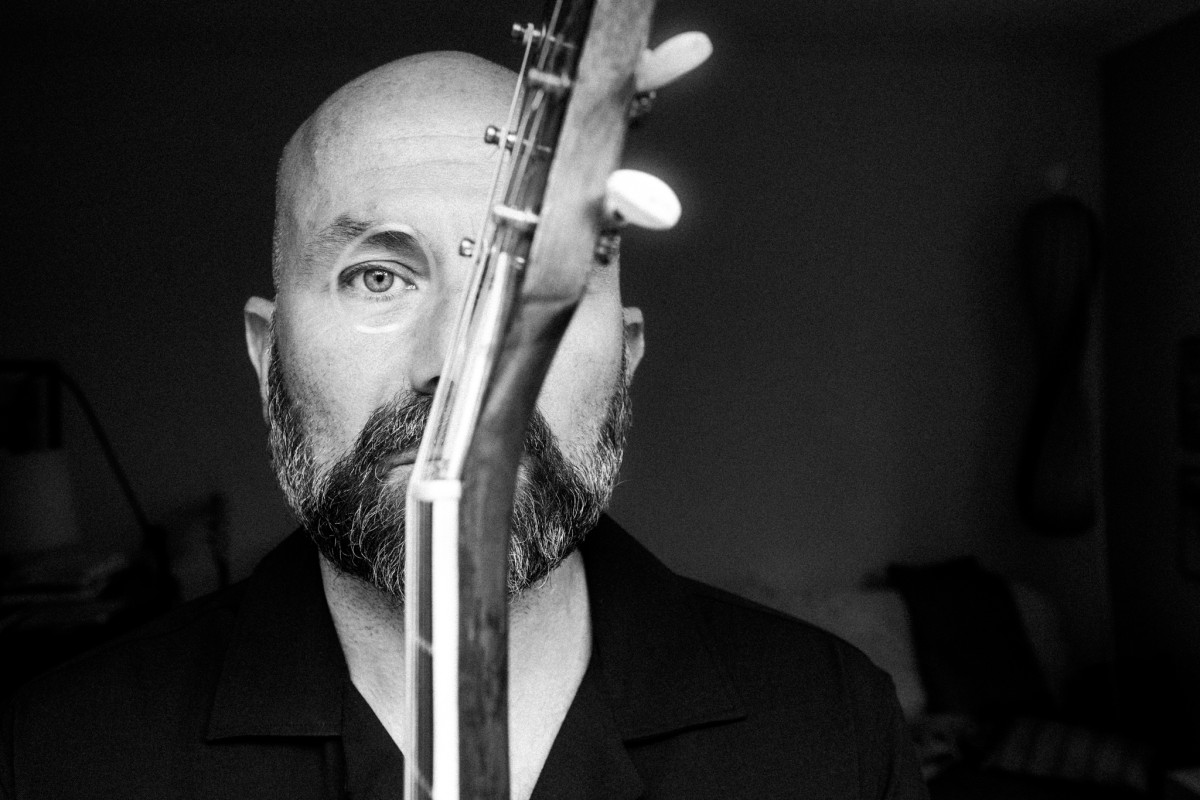
Normally, I avoid quoting press releases directly, but this description of the intimate and multifaceted Confluencia is hard not to echo. On this album, the Danish guitarist and experimentalist has assembled a small ensemble of musicians from the borderlands between neoclassicism and jazz. The real stars of the record are pianist Simon Toldam and – especially – Susana Santos Silva, whose trumpet bleats, breathes, and scrapes against the ear. She toots in ways rarely heard in postmodern experimentalism.
Confluencia seeks to reflect modern communication – a kind of communication that ought to transcend boundaries of race, gender, and other dividing forces – through instrumental music. A form that seems to be fading day by day in a haze of misinformation, miscommunication, and mistrust. Toldam’s piano leans toward eerie dissonance, while Solborg’s guitar adds a tender, almost vulnerable tone – especially on »Southern Swag«. The music is at its strongest when the instruments converge in conversation and unison moments, such as in the strange funeral ballad »Planes«, which teeters on the edge of collapse with ghostly piano figures and diabolical chimes.
Confluencia moves between jazz, folk, ambient, and avant-garde – with a chamber-like intimacy that insists on intensity, melancholy, and reflection. What makes the album truly powerful is precisely what many experimental releases lack: space for contemplation and dialogue with the listener. Tungemål dares to be experimental without overpowering itself – and paints with a broad emotional brush, where tragedy is always lurking on the horizon.
English translation: Andreo Michaelo Mielczarek
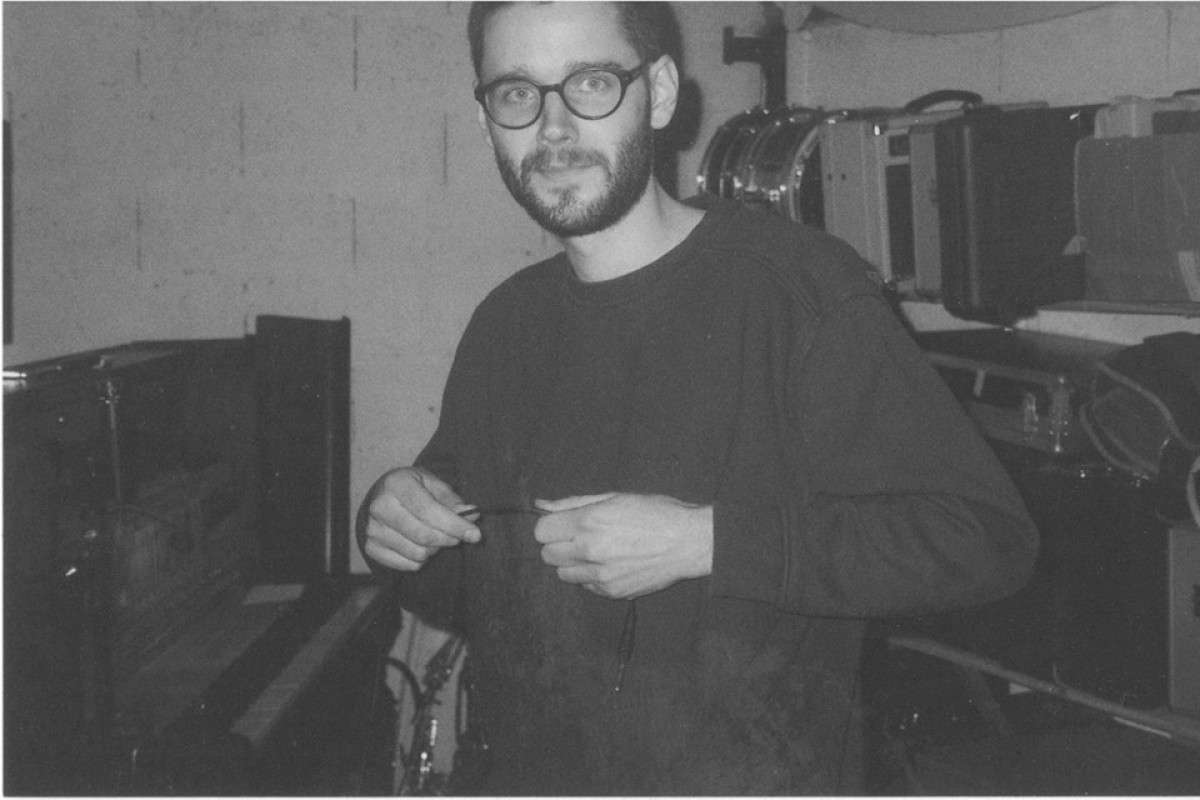
The sea is a powerful metaphor for the nature of identity – from stormy defiance to tranquil stillness, our individual traits drift in an eternally shifting ocean. On Original Spirit, French musician Les Halles drops anchor in the mutable waters of the mind, using pan flutes and dusty echoes as his compass.
The eight tracks are deeply rooted in the enveloping world of ambient music, and from the opening piece, »Angels of Venice«, the sound washes over the listener like gentle waves. Soft, bending synth textures accompany recurring flute runs, while echoes of the past flicker by like faded Kodak moments – faint glimmers of memory in a foggy inner landscape.
The word ambient can be traced to the Latin ambire, meaning »to go around«, and the genre is thus defined by music that »surrounds« the listener. Les Halles, also known by his real name Baptiste Martin, fully embraces this quality. The music is gentle, devoid of dominant melodies or rhythms – like a safe little bubble one can freely float in.
Like much ambient music, Original Spirit is free of lyrical frames of interpretation. However, the accompanying press text frames the album as a letter, written by Baptiste Martin during a disoriented period, including a stay in psychiatric care. As listeners, we’re invited to drift in a turbulent yet mirror-still sea of lost identities and lose ourselves in the warm current of consciousness the music creates. It certainly doesn’t break any ambient conventions – but it’s a pleasure to be swept away nonetheless.
Postcard From the Borderlands of Sound
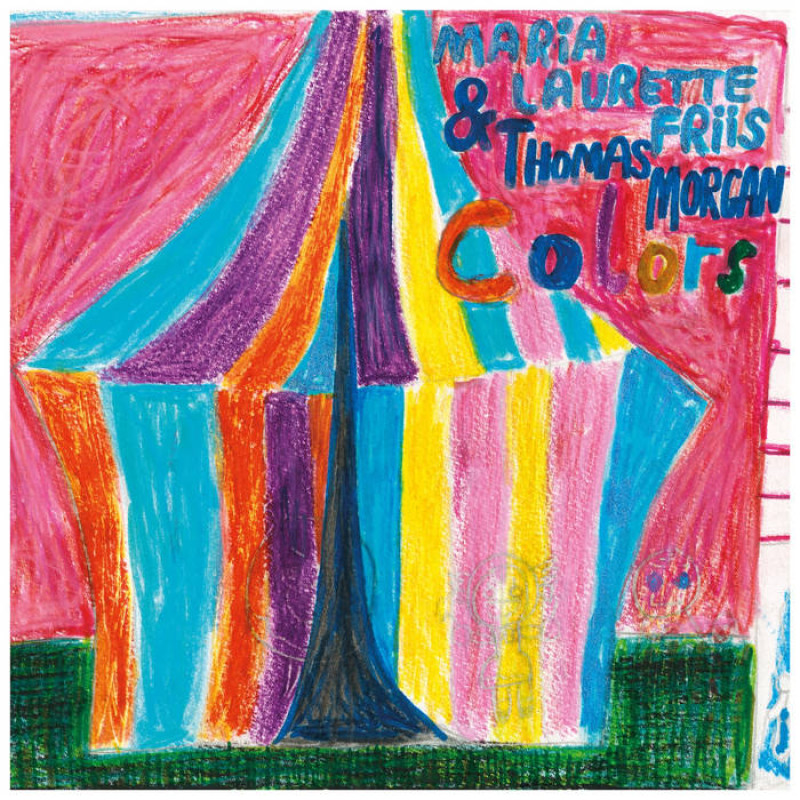
In the world of experimental music, it now takes quite a lot to be truly surprised – it’s a space where both treasures and old debts are often revisited. That’s why listening to Colors, the improvised duo album by Maria Laurette Friis and Thomas Morgan, feels like a fresh revelation. Pairing an experimental vocalist and composer (Friis) with an experienced double bassist (Morgan) and letting them improvise for three hours may not sound groundbreaking at first. Yet somehow, a rare and unique symbiosis arises between voice and double bass – a connection so special that one rarely hears anything quite like it.
Friis is a dazzling singer, and her wordless expressions draw on everything from Mongolian throat singing and jazz to Nordic darkness. She shifts effortlessly between pure singing and guttural sounds within a single improvisation. Morgan’s double bass provides an intriguing contrast, exploring the instrument’s outer edges without ever becoming unpleasant.
The three-hour recording session has been distilled into nine tracks spanning a total of 45 minutes, and the concept of using only voice and double bass is maintained throughout – despite both musicians’ backgrounds in vastly different musical expressions. The unique language that emerges is often both unsettling and deeply beautiful. When they give each other space – as in the seven-minute »Eight« – and when the bass plays alone, it’s impossible not to sway along, even without a proper beat. Colors proves that great art can still arise from nothing – in both the strange and the more familiar dialogues. That is exactly what Friis and Morgan achieve on this captivating postcard from another world.
English translation: Andreo Michaelo Mielczarek
Absurd Beauty in the Theatre of Noise
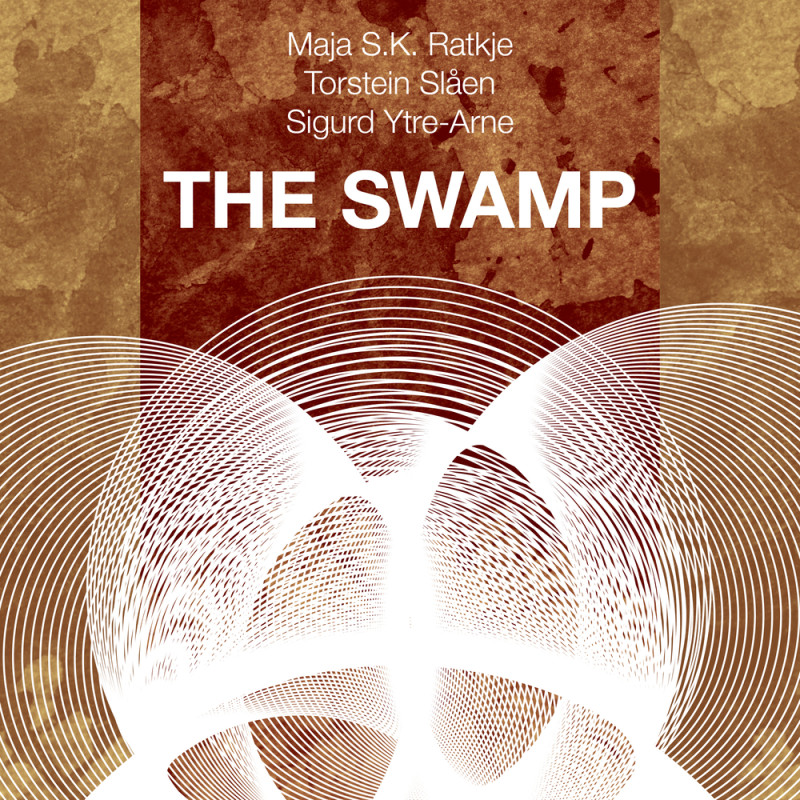
The term Dadaism must be used with caution – it easily risks becoming a cliché and trampling disrespectfully on its origins. Nevertheless, it’s hard to avoid Dada when listening to The Swamp, created by Norwegian experimental composers Maja Ratkje, Torstein Slåen, and Sigurd Ytre-Arne. The album is a 40-minute chaotic mirror of our times, shaped by merciless improvisation, noise drones, and Ratkje’s absurd vocalizations.
The music is raw, rancid, and deliberately un-beautiful – a constant stream of manipulated field recordings, reminiscent of a horror film foley studio. Bells, metallic clanks, white noise, and industrial sounds are warped together, driven by a syncopated, menacing rhythm and an underlying fuzz drone. Most fascinating is Ratkje’s voice, which appears as a riddle: is she singing in Celtic, Norwegian, or pure gibberish? The latter seems most likely and evokes the Dada poetry of Kurt Schwitters, particularly his 1932 Ursonate. At the same time, her vocal techniques dig deep into Nordic soil – conjuring the spirit of völva chants and Viking songs.
The combination of controlled noise and purposeful chaos elevates much of the album, with the opening track and the completely unhinged »Discomanic« standing out. The former is as close as the trio gets to something conventional; the latter borders on pure sound art. Only the two slower pieces – the seven-minute-long »Oligarchification« and »Lullaby for Trembling Hearts« – tend to drag a bit. Otherwise, the group manages to keep the material focused, sharp, and intensely trippy. It’s impressive how effectively it all works, even as the expression remains so relentless and challenging.
English translation: Andreo Michaelo Mielczarek
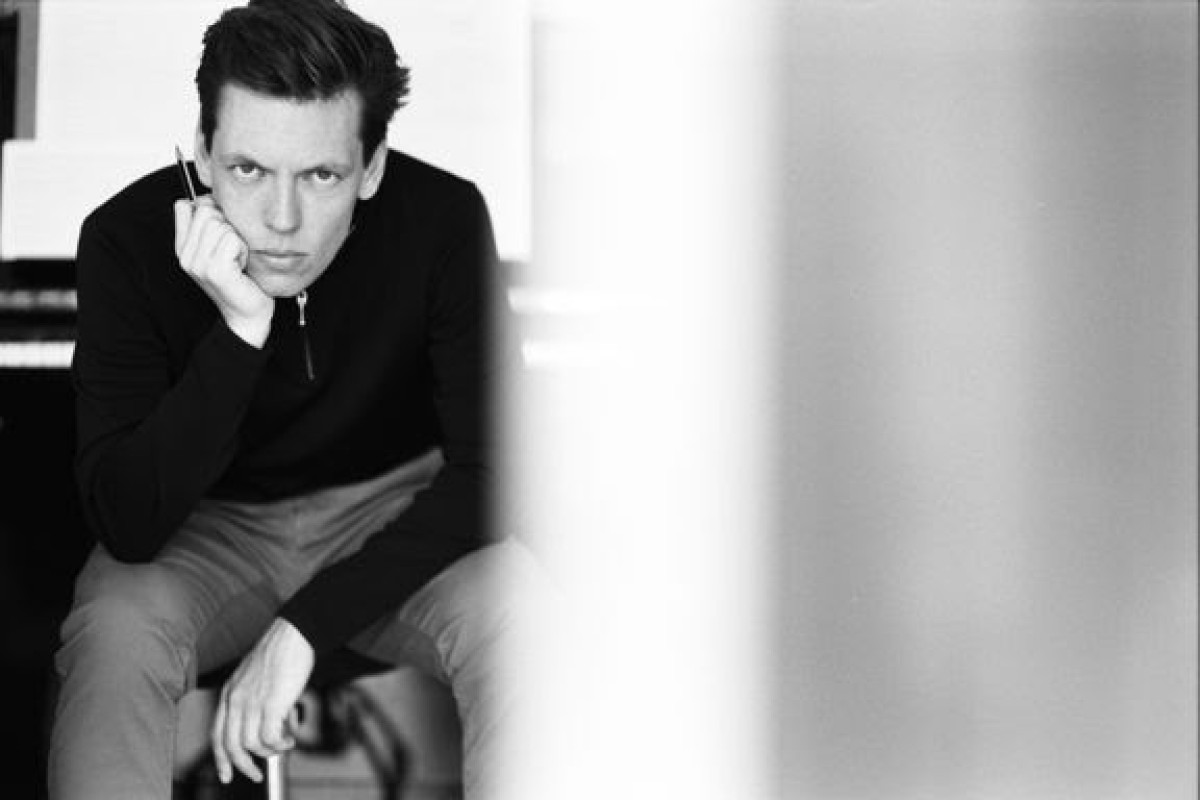
A string quartet consists of four players, and a clarinet quintet five, though the Danish composer Rune Glerup (b. 1981)’s newly recorded works for both ensembles would have you believe their ranks are vastly undercounted. The recipient of last year’s Nordic Council Music Prize for his violin concerto Om lys og lethed (About Light and Lightness), Glerup writes pieces for chamber and orchestra that are often characterized by their multidimensionality: a sonic idea will persistently recur in altered guises, for a sense that one is feeling around different facets of a physical form. Yet the two works on Perhaps Thus the End – brought to life by the impeccable Quatour Diotima and clarinetist Jonas Frølund – are just as potent a demonstration of expansive interiority as they are of surface area.
In the titular string quartet, whose seven movements are named for lines from Beckett’s late prose work Stirrings Still, long tones and galloping motives are seamlessly shuffled amongst the ensemble, generating such a sonority that the group seems to have doubled in size. The language is sometimes mechanical but never automatic, bending rather into balletic shapes. Glerup is a careful manager of texture, finding grace in unintuitive sounds through skillful layering – to speak merely of how, in a later movement, a harmonic pizzicato punctuates the string equivalent of vocal fry before the group pivots suddenly into stillness.
On the unexpectedly addictive »Still Leaning Towards this Machine«, which is surely among the few times a contemporary clarinet quintet has received that distinction, electronics magnify the ensemble through a subtle stuttering resonance. As a result, across three spunky movements, the group is occasionally transmuted into a sort of paranormal accordion. It’s a wonderfully weird effect that, just as weirdly, the score seems to deliver with a straight face – just one more satisfying surprise among many others on this excellent record.
